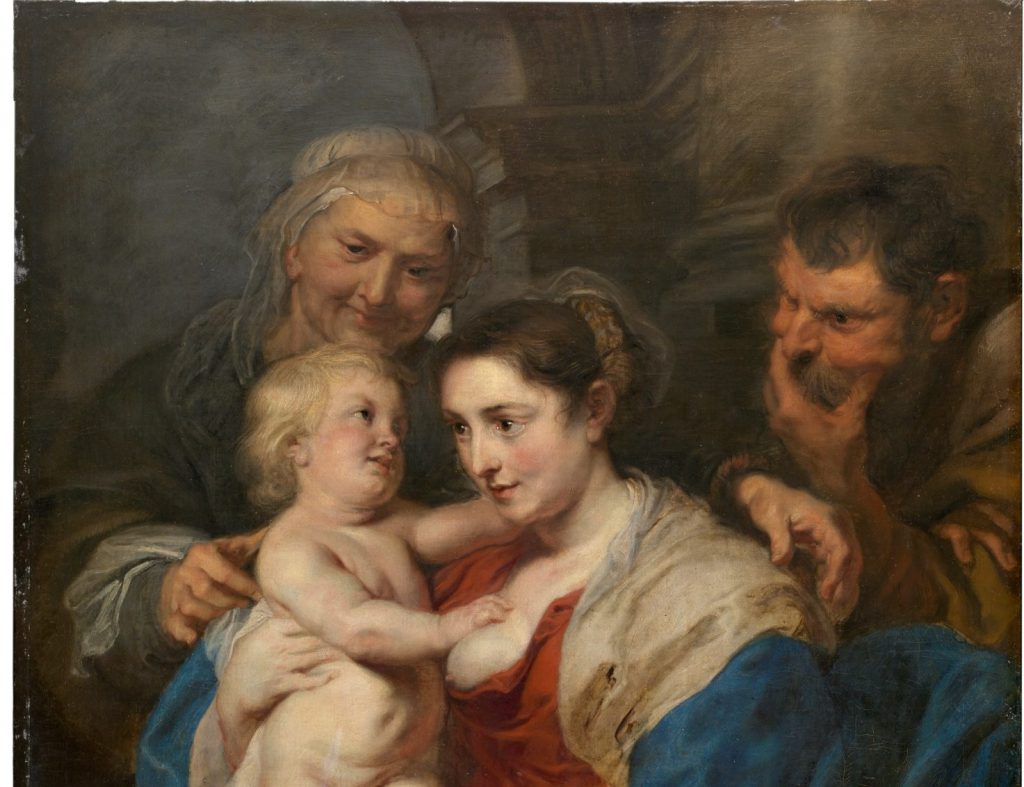
Published January 20, 2021
Over the past week my wife and I finally put away our Christmas decorations. Another year yawns before us, but we accepted the fact, reluctantly, that we’re back in “ordinary time,” the season of patient trust in God, which the Church marks in the green vestments of her priests.
Alas, patience isn’t an American strong suit, and in the shadow of COVID, the temptation to fear and fury can be fierce. Worse, these January days have been anything but “ordinary” in a political sense, with the Capitol invaded by an angry mob from the right, and a venomous spirit of reprisal from congressional and media orcs on the left.
Augustine would regard this as the natural state of the City of Man. He’d also remind us that whining about the evil of the times makes no sense, because we make the times. The times reflect who we are, and we change them for the better or the worse one soul at a time, starting with ourselves. In the sacred space of our conscience and our personal choices, none of us is powerless, and no life, no matter how obscure or limited, is inconsequential. How we live our lives matters. I’ll offer a simple example.
Nearly 70 years ago, in the town where I lived, a truck still delivered the milk to a small gray box on our porch. In those days, milk still came in heavy glass bottles. I was 4, and my youngest sister was 1. Every day we would take an unwelcome (and involuntary) afternoon nap together. And because my sister was always very restless, my mother would pat us to sleep with one of her Irish lullabies.
One day my mother was pouring us some milk, just before the nap. The bottle slipped and smashed. The pieces of glass were a quarter of an inch thick and sharp as knives – and as she reached forward to clean up the mess, she cut open her hand from one side of her palm to the other. She bled all over her clothing. She made the bleeding stop by wrapping a thick white kitchen towel tightly around her hand. To this day, I remember the bright red stain that the wound left as blood spread through the fabric of the cloth.
But here’s the point: Five minutes later, she had us both on the bed, singing one of her lullabies, patting me with her good hand, and my sister with her other scarlet stump. And I remember thinking – in a 4-year-old, primitive version of English – “That’s got to hurt.” And then, “She must really love us.”
Now that story has a lesson well beyond sentimental nostalgia. If we want an example of what the best of the lay vocation looks like, this simple act is it. This woman invented no new vaccine, ran no major company, and left her name on no major legislation. In her own seemingly unimportant life, she could have chosen to be angry. She could have been selfish. She could have forgotten her children to take care of herself. Instead, she attended to her young ones until they both fell asleep.
Every time over the next few decades when I tired of my parents’ talk about God – they were especially fatiguing when I did things they hated, and I knew they were right – into my memory would sneak this image. And I would run out of irritated words.
You see, we can ignore love or try to evade it. But we can’t refute it. There was no “secret formula” or exalted title to this woman’s lay vocation. She was simply trying to love as God loves, in the unheroic, undramatic, practical daily circumstances where God had placed her. And in doing that, she shaped the lives of her children profoundly, permanently, one at a time. She became the kind of “good infection” Mother Teresa often talked about.
Most believers have similar stories or persons in their own experience, or they wouldn’t believe. People, not things or tools or clever strategies, convert people. We can’t give what we don’t have. Lay activism, lay organizations, and lay collaboration in the management of the affairs of the Church – all these things are vital opportunities to give glory to God. The Church needs faithful and creative lay leadership now more than at any time in her recent history.
But ultimately, real lay “power” doesn’t reside in money or professional skill or positions of influence within the Church bureaucracy. It resides in a personal witness of holiness, which is both simple and demanding. There’s an obvious calculus to this. There’s no Church without the Eucharist. There’s no Eucharist without the priest. But there’s also no priest without committed laypeople who form their sons to listen for God’s call and to sacrifice themselves out of love for God and the believing community.
C.S. Lewis once wrote that “There is no neutral ground in the universe; every square inch, every split second, is claimed by God and counter-claimed by Satan.” John Paul II added that, “Against the spirit of the world, the Church takes up anew – each day – [a] struggle for the soul of the world.” And Henri De Lubac, the great Jesuit theologian, wrote, “The Gospel warns us that salt can lose its flavor. And if we”– that is, most of us – “live more or less at peace in the midst of the world, it is perhaps because we are lukewarm.”
I began with a mention of the orcs now returning to power in Washington. I’ll end by borrowing a thought from Tolkien, who knew their peculiar species, their malice, and the only way to overcome them, so well. We don’t get to choose the times in which we live. But we do get to “decide what to do with the time that is given us.” Our task is to love well, unselfishly, and with courage, in whatever place, with whatever time, God provides us. And that is enough.
© 2021 The Catholic Thing.
Francis X. Maier is a senior fellow in Catholic studies at the Ethics and Public Policy Center, and senior research associate at the University of Notre Dame.









